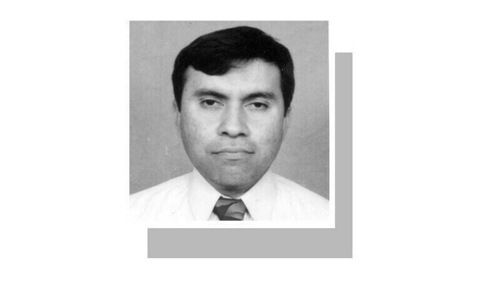ISLAMABAD: The International Labour Organisation (ILO) has warned that the share of labour income, which represents the proportion of total income earned by workers in an economy, has experienced a decline over the past two decades by 1.6 percentage points.
New estimates indicate that the labour income share continued to decrease since 2019, declining to 52.3pc in 2022 and remaining at that level in 2023 and 2024, according to ’World Employment and Social Outlook: September 2024 Update“, released on Wednesday.
This is 0.6pps below the pre-pandemic level, and the decline, while modest in percentage points terms, represents a sizeable and persistent shortfall in labour income. As productivity has increased, labour income has grown significantly over these 20 years, even while the labour income share declined. Yet this decline puts upward pressure on inequality, the report notes.
The labour income share is a widely used measure of inequality, which measures the proportion of total income in a country that employed people earn by working. While the decrease appears modest in terms of percentage points, in 2024 it represents an annual shortfall in labour income of $2.4 trillion compared to what workers would have earned had the labour income share remained stable since 2004.
The report finds upward pressure on inequality as the labour income share stagnates and a large share of youth remains out of employment, education or training.
The report highlights the Covid-19 pandemic as a key driver of this decline, with nearly 40pc of the reduction in the labour income share occurring during the pandemic years of 2020-2022.
Amongst other factors, economic studies have identified technology as a key driver of declines in the labour income share. Recent developments in the artificial intelligence (AI) field make it particularly relevant to analyse the relationship between technological innovations and the labour income share.
Across a sample of 36 countries with the required data, composed of mostly advanced economies, technological innovations over the past two decades have produced persistent increases in labour productivity and output; however, they can also reduce the labour income share. The evidence suggests that automation-oriented technological progress could contribute to declines in labour income share.
Focusing on the last five years and disaggregating by region highlights different trends. Africa, the Americas, and Arab states registered clear declines in the labour income share between 2019 and 2024. Asia and the Pacific registered a mild decrease of 0.2 percentage points. Europe and Central Asia saw a decline of 1.0pps between 2019 and 2024, but contrary to the other regions, the trough was reached in 2022, with a rebound in 2023 and 2024.
ILO says technological advances, including automation, have played a role in this trend. While these innovations have boosted productivity and output the evidence suggests that workers are not sharing equitably from the resulting gains. The report warns that without comprehensive policies to ensure that the benefits of technological progress are broadly shared, recent developments in the field of artificial intelligence could deepen inequality, putting the achievement of the SDGs at risk.
“Countries must take action to counter the risk of declining labour income share. We need policies that promote an equitable distribution of economic benefits, including freedom of association, collective bargaining and effective labour administration, to achieve inclusive growth and build a path to sustainable development for all,” said ILO Deputy Director General Celeste Drake.
Published in Dawn, September 5th, 2024














































Dear visitor, the comments section is undergoing an overhaul and will return soon.